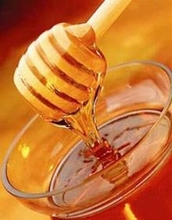 A new study suggests that eating 25 percent of energy from fructose or high fructose corn syrup may increase cardiovascular disease risk.
A new study suggests that eating 25 percent of energy from fructose or high fructose corn syrup may increase cardiovascular disease risk.The study found young adults increased postprandial serum levels of triglycerides, bad cholesterol and apoliprotein - or ApoB, a component of LDL cholesterol.
K.L. Stanhope and colleagues from University of California - Davis conducted a study to see how how glucose, fructose or high fructose corn syrup or HFCS would affect the cardiovascular risk factors such as cholesterol and triglycerides when they are consumed as 25 percent of the total caloric intake.
For the study, Stanhope et al. enlisted 48 adults aged 18 to 40 years with a body mass index from 18 to 35 kg/m2.
The participants stayed in a research center for three and half days eating an energy-balanced diet with 55 percent of its calories from complex carbohydrates. Then they were allowed to eat ad libitum a diet consisting of 15 percent of energy from either glucose, fructose or HFCS-sweetened beverages out of the research center for 12 days. After that, they were eating an energy balanced diet with 25 percent of energy from sugar and 30 percent energy from complex carbohydrates for additional three and half a day.
The researchers observed after the dietary intervention that subjects eating fructose increased the 24- hour triglycerides by 4.7 mmol/L, and that those eating HFCS increased the blood fat by 1.8 mmol/L.
No increase was seen among those eating glucose.
Similarly, fasting bad or LDL-cholesterol and APOB levels increased by 0.29 mmol/L and 0.093 mmol/L respectively in those who ate fructose. In those eating HFCS, bad cholesterol and APOB increased by 0.42 mmol/L and 0.12 mmol/L respectively.
No increase in these two parameters was found in those who were assigned to eat glucose.
High serum levels of bad cholesterol and blood fat triglycerides are known risk factors for heart disease.
"High levels of APOB can lead to plaques that cause vascular disease (atherosclerosis), leading to heart disease", wikipedia states.
The study was reported in the Aug 2011 issue of the Journal of Endocrinology and Metabolism.
Glucose is rarely used as a sweetener because it does not taste as sweet as desired. High fructose corn syrup, which is most commonly used in processed foods and beverages, contains both fructose and glucose almost in equal amounts, and it tastes very sweet because of the presence of fructose. Fructose is also found in honey and many fruits.
Recently, fructose has been found associated with a myriad of health conditions such as obesity, diabetes, liver disease, high blood pressure and increased risk of pancreatic cancer among others.
The Dietary Guidelines for Americans, the 2010 version, recommends that sugar intake be limited to 25% of total energy or less. The study suggests that eating the recommended amount of sugar, mostly in the form of HFCS may increase risk of cardiovascular disease in food consumers.





